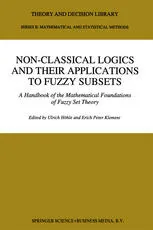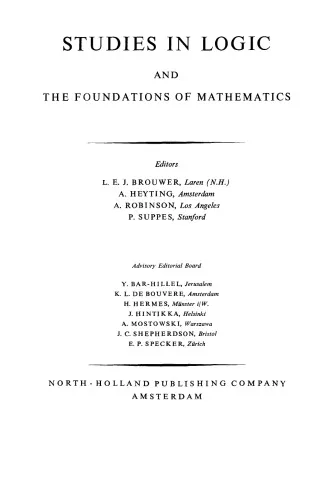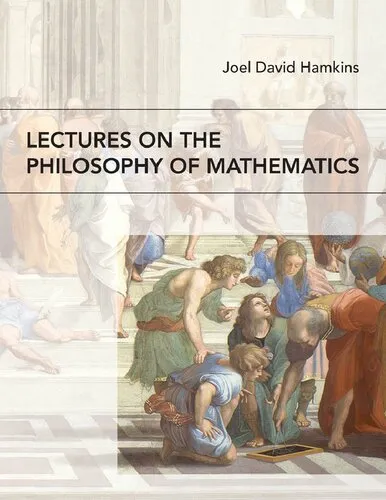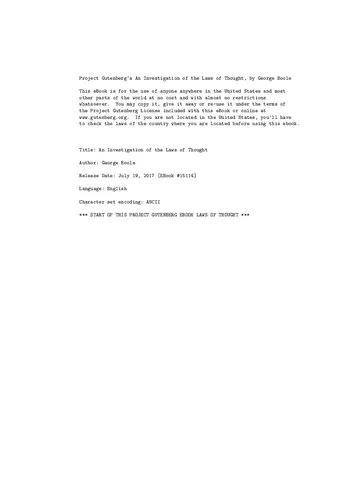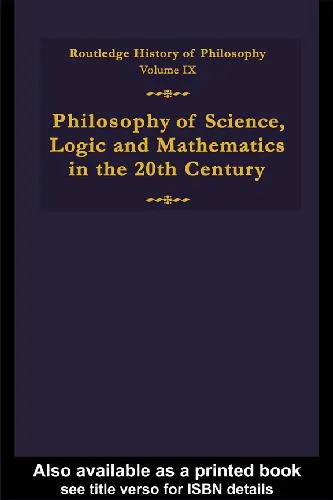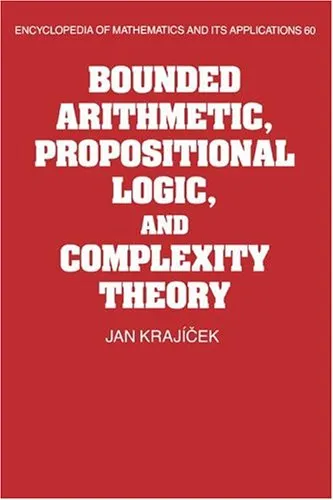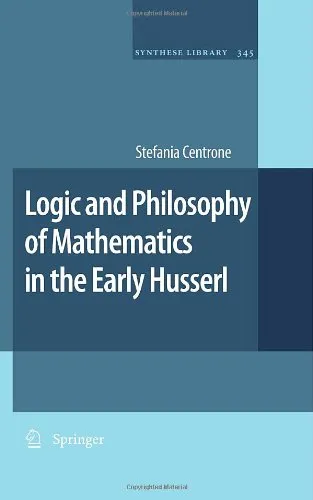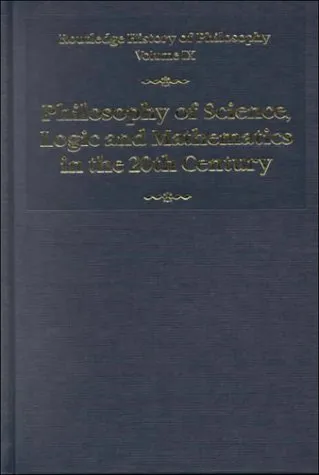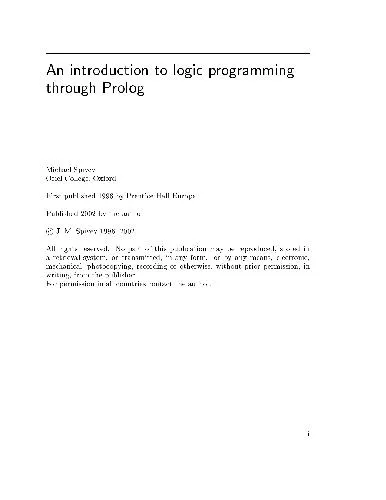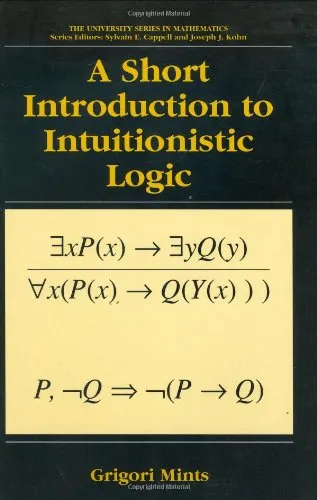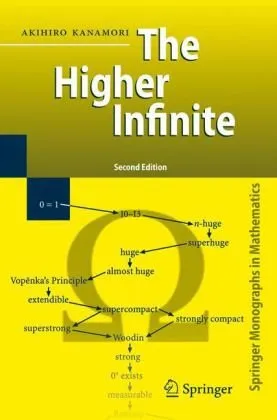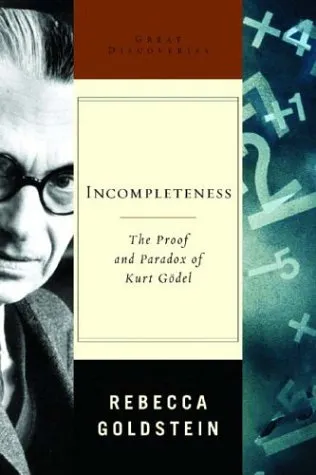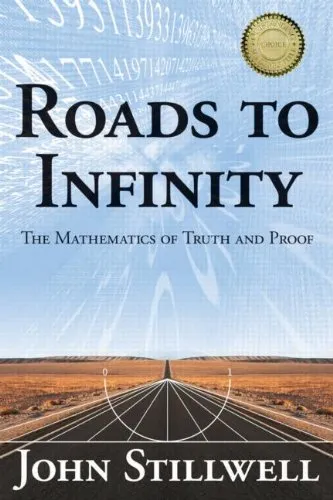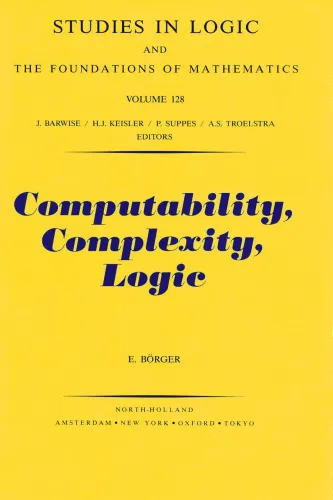Non-Classical Logics and their Applications to Fuzzy Subsets: A Handbook of the Mathematical Foundations of Fuzzy Set Theory
4.0
Reviews from our users

You Can Ask your questions from this book's AI after Login
Each download or ask from book AI costs 2 points. To earn more free points, please visit the Points Guide Page and complete some valuable actions.Related Refrences:
Introduction to "Non-Classical Logics and their Applications to Fuzzy Subsets: A Handbook of the Mathematical Foundations of Fuzzy Set Theory"
"Non-Classical Logics and their Applications to Fuzzy Subsets" explores the intersection of logic, mathematics, and fuzzy set theory, providing a rigorous and comprehensive foundation for those interested in delving into the fascinating world of non-classical logics. This book serves as a crucial resource for researchers, academics, and practitioners who are eager to understand how various non-classical logical systems serve as a backbone for the development and application of fuzzy subsets.
The text emphasizes the role of non-classical logics—such as many-valued logic, intuitionistic logic, and modal logic—in forming the underpinnings of fuzzy set theory. These logical systems extend classical logic, offering nuanced tools to better model and manage uncertainty, vagueness, and imprecision in a variety of decision-making and computational contexts.
By presenting mathematical principles, alongside logical frameworks, this book guides the reader step-by-step through theoretical concepts and practical applications. Its approachable yet detailed presentation ensures accessibility for newcomers while offering advanced insights for seasoned experts in logic, mathematics, or fuzzy set theory.
Detailed Summary of the Book
The book begins with foundational chapters dedicated to classical and non-classical logic systems. Emphasis is placed on how these logical frameworks diverge from strict binary interpretations of true and false, embracing the continuum of truth values that characterizes fuzzy logic. Readers are introduced to essential concepts such as propositional logic, predicate logic, and algebraic logic, before advancing into their "non-classical" counterparts.
As the book progresses, it delves into the primary mathematical structures underpinning fuzzy subset theory—lattice theory, order theory, and topology. The integration of these mathematical tools creates a robust framework for analyzing uncertainty and approximation within the scope of fuzzy reasoning.
Later chapters provide a systematic exploration of fuzzy subsets, illustrating their utility in modeling real-world systems that require adaptive, approximate reasoning. Applications span from artificial intelligence, control systems, and decision support to broader questions of epistemology and human reasoning.
Each chapter is carefully structured to provide a balance between theory and application, ensuring that readers not only grasp abstract concepts but also understand their relevance to computational and scientific challenges.
Key Takeaways
- Understanding the mathematical and logical foundations of fuzzy set theory.
- Comprehension of non-classical logics, including many-valued, modal, and intuitionistic logics.
- Insights into how non-classical logics address vagueness, uncertainty, and imprecision in both natural and artificial systems.
- Knowledge of the practical applications of fuzzy subsets in areas like artificial intelligence and decision-making.
- Ability to bridge abstract mathematical concepts with real-world challenges requiring fuzzy reasoning and logical flexibility.
Famous Quotes from the Book
"Classical logic, with its rigid structure and binary outcomes, serves as the architecture of certainty. Non-classical logics open the doors to uncertainty, offering a more human, adaptive, and dynamic intellectual framework."
"Fuzzy subsets go beyond mathematics; they represent a philosophy—a way to embrace ambiguity and model the real world's inherent uncertainty."
"The elegance of non-classical logic lies in its departure from absolutes. It teaches us the art of reasoning in the gray, where truths are neither black nor white."
Why This Book Matters
At its core, "Non-Classical Logics and their Applications to Fuzzy Subsets" addresses one of the most fundamental challenges of modern science and philosophy: managing uncertainty. From artificial intelligence to human reasoning, our ability to make informed decisions often hinges on approximations, partial truths, and complex trade-offs. This book equips its readers with the tools to model such intricate systems through the lens of fuzzy logic and its rich mathematical foundations.
Furthermore, this work is pivotal due to its interdisciplinary approach. By bringing together elements of logic, mathematics, and applied science, it offers a holistic resource that encourages deeper understanding and innovation in areas like computation, control theory, and decision analysis. Its emphasis on clarity, structure, and rigor ensures that it will serve as a cornerstone reference for decades to come.
For those who aim to expand their grasp of mathematical reasoning and explore the fascinating applications of fuzzy subsets, this book is an indispensable companion. Whether you're a mathematician, computer scientist, philosopher, or engineer, you'll find invaluable insights within its pages. It's not just a book on fuzzy logic—it's a guide to embracing complexity and learning to think beyond the binary.
Free Direct Download
You Can Download this book after Login
Accessing books through legal platforms and public libraries not only supports the rights of authors and publishers but also contributes to the sustainability of reading culture. Before downloading, please take a moment to consider these options.
Find this book on other platforms:
WorldCat helps you find books in libraries worldwide.
See ratings, reviews, and discussions on Goodreads.
Find and buy rare or used books on AbeBooks.
1493
بازدید4.0
امتیاز0
نظر98%
رضایتReviews:
4.0
Based on 0 users review
Questions & Answers
Ask questions about this book or help others by answering
No questions yet. Be the first to ask!
